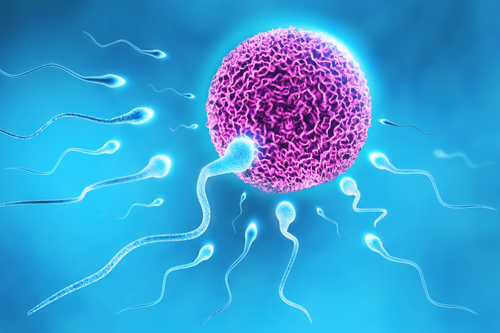Healthy sperms aren’t always a state of fact. Understand how lifestyle factors can impact your sperms and what you can do to improve your fertility chances…
Male fertility refers to a man`s ability to reproduce by natural means. If you and your wife consider a pregnancy, you might be wondering about the health of your sperms. There are certain aspects of sexual function and semen quality that can affect male fertility; you ought to understand these before considering steps to help your sperms achieve your goal:
Male fertility refers to a man`s ability to reproduce by natural means. If you and your wife consider a pregnancy, you might be wondering about the health of your sperms. There are certain aspects of sexual function and semen quality that can affect male fertility; you ought to understand these before considering steps to help your sperms achieve your goal:
- Libido (sexual drive) – libido describes a person’s desire to have intercourse.
- Erectile function (male organ potency) – represents the ability of a man to develop and maintain an erection.
- Sperm count (quantity) – A man is likely to be fertile if his ejaculate (the seminal fluid discharged during intercourse) contains at least 20 million sperm per milliliter. Too little sperms in an ejaculation might make it more difficult to achieve pregnancy because there are fewer sperms available to fertilize the egg.
- Sperm movement (motility): To reach and fertilize an egg, sperm must move; wriggling and swimming through a woman’s cervix, uterus and up to the fallopian tubes. You’re most likely to be fertile if at least 40 percent of your sperm are moving.
- Sperm structure (shape): Normal sperms have oval heads and long tails, which work together to propel them. The more sperms you have with a normal shape and structure, the more likely you are to be fertile.

What causes male fertility problems?
There are several medical conditions that can contribute to male fertility problems, most common of which include:
- Testicular disease (e.g. infection)
- Immunity-related disorders (e.g. antibodies that attack sperms)
- Scrotal problems (e.g. Varicocele)
- Sperm transport disorders
- Problems with sexual function (e.g. weak erection)
- Hormonal imbalance (e.g. low testosterone)
- A problem of the pituitary gland in the brain (e.g. tumors)
What’s the best way to produce healthy sperm?
There are certain simple steps that you can take to boost your chances of producing healthy sperms, like considering the following:
- Strive to maintain a healthy weight. There is growing evidence that mounting body mass index (BMI) is linked with decreasing sperm quality.
- Eat healthy. Choose plenty of fruits and vegetables, which are rich in antioxidants that help protecting your sperms from noxious elements.
- Move it. Being physically active will prevent obesity, which is definitely linked. Exercise also helps to relieve stress, so it’s worth getting sweaty.
- Control your stress. Prolonged stress can have a negative effect on libido and sexual function, as well as the possibility of interfering with the hormones needed to produce sperms.
- Don’t smoke. Men who smoke cigarettes are more likely to have low sperm counts.
- Talk to your doctor about any medications you are taking. Certain medications can contribute to low male fertility issues (e.g. anabolic steroids, anti-depressants, chemotherapy, etc.).
When is it time to seek help?
Adhering to healthy lifestyle practices to support your fertility — and avoiding things that can negatively impact it — can improve your chances of fathering a baby. If you and your wife are not able to have a pregnancy after a year of regular and un-interrupted marital life, you might consider being evaluated for delayed fertility. A specialized Andrologist (= Men`s Heath Expert) can help you identify the cause of the problem and offer you the appropriate management plan that places you and your wife on the right track to parenthood.
Written with affection,
Dr. Anis Haddad
Urologist & Men`s Health Expert




No Comments